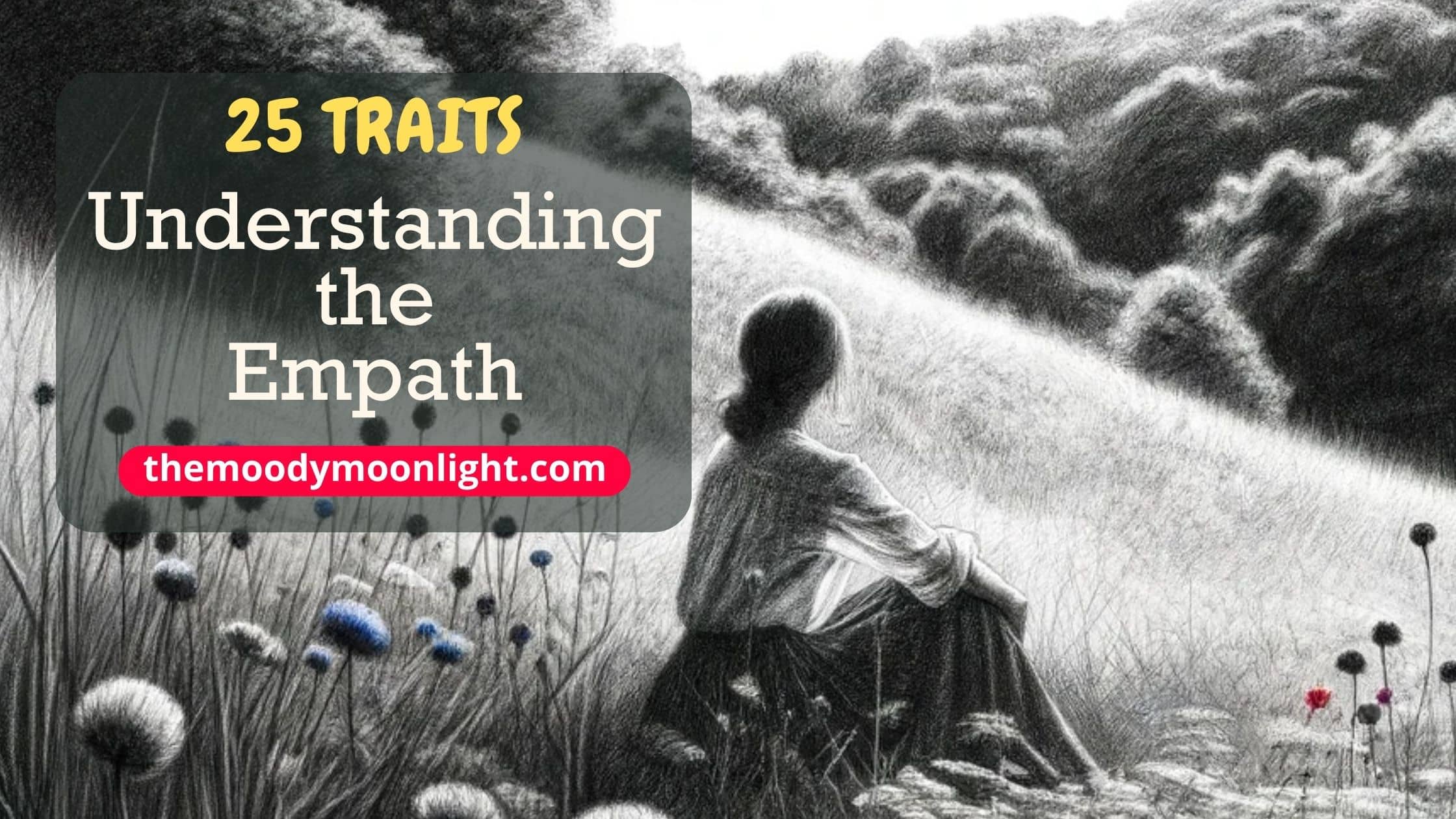Understanding the Empath: A Journey into Emotional Sensitivity.
The Empath’s Intuitive Gift
Empaths possess an innate ability to deeply understand their surroundings and the emotions of those around them. This sensitivity extends beyond mere intuition, allowing them to ‘just know’ things without needing them to be articulated. It’s a gift that enables them to navigate the world with a profound level of empathy and understanding.
Understanding the Empath
1. Navigating Public Spaces: A Challenge for Empaths
Empaths often find crowded places like shopping centers or stadiums overwhelming due to the multitude of energy sources. In such environments, they might experience a cacophony of emotions that can be disorienting and exhausting.
2. Emotional Resonance: Feeling Others’ Emotions
Empaths have the unique ability to sense and internalize the emotions of those near them and even from a distance. This capacity makes them highly attuned to negativity in their environment, allowing them to be effective in identifying and responding to it.
3. Sensitivity to Violence and Tragedy
Empaths are particularly affected by violence, cruelty, or tragedy, whether in media or real life. Scenes of suffering or brutality can be unbearable for them, deeply impacting their emotional well-being.
4. Detecting Dishonesty: A Human Lie Detector
Empaths are adept at discerning dishonesty. They can intuitively tell when someone is lying or hiding their true feelings, making them human lie detectors.
5. Physical Symptom Absorption
Empaths often find themselves developing the physical symptoms of those around them. This phenomenon extends to both physical ailments and emotional distress, reflecting their deep connection to others’ experiences.
6. Digestive and Back Issues: The Physical Toll
The empath’s sensitivity can manifest in physical ailments like digestive disorders or back problems. These issues often arise from internalizing the emotions of others, highlighting the need for empaths to manage their emotional intake carefully.
7. Champions of the Underdog
Empaths are naturally drawn to help those in need. They feel a strong pull towards individuals who are suffering or marginalized, often dedicating themselves to offering support and compassion.
8. A Magnet for Others’ Problems
Empaths often find themselves approached by others, including strangers, seeking comfort or a listening ear. Their empathic nature makes them excellent at understanding and absorbing others’ issues.
9. Battling Constant Fatigue
Dealing with a barrage of external emotions can leave empaths feeling perpetually drained. This fatigue often goes beyond what can be alleviated by rest alone, underscoring the importance of emotional management for empaths.
10. The Empath’s Addictive Tendencies
In an attempt to shield themselves from overwhelming emotions, empaths might turn to substance use as a coping mechanism. This behavior often stems from a need to block out external feelings and find some form of emotional relief.
11. Drawn to Healing and Metaphysical Fields
Empaths are naturally inclined towards healing professions and metaphysical studies. They possess a deep understanding of philosophical concepts and life’s greater mysteries, although they might sometimes shy away from roles where they are in a constant state of giving.
12. Creative Souls
Empathy and creativity often go hand in hand. Empaths tend to have a strong creative streak, whether in arts like singing, dancing, or writing, allowing them to express their rich inner world imaginatively.
13. A Love for Nature and Animals
Empaths find solace and rejuvenation in nature and have a special connection with animals. Being outdoors and around pets is essential for their mental and emotional well-being.
14. The Need for Solitude
Solitude is not just a preference but a necessity for empaths. It provides them with a much-needed break from external stimuli, allowing them to recharge and heal.
Understanding the Empath
15. Stimulation Seekers
Empaths require constant mental engagement to feel fulfilled. Boredom can be particularly challenging for them, often leading to daydreaming or engaging in creative pursuits to stimulate their minds.
16. Passionate and Authentic
Empaths are deeply passionate about their interests and endeavors. They struggle to engage in activities that don’t resonate with them, often being misunderstood as lazy when they are simply uninterested.
17. Seekers of Truth
Empaths strive for authenticity and truth in all aspects of life. They have an inherent ability to see through falsehoods, making them seekers of genuine connections and experiences.
18. Inquisitive Minds
Empaths are naturally curious, always seeking answers and knowledge. They feel a strong need to understand the world around them and confirm their intuitive insights.
19. Free Spirits: Love for Adventure and Travel
Empaths are born adventurers, who crave freedom and new experiences. They resist confinement and thrive in environments where they can explore and grow.
20. Dislike for Clutter
Negative emotions like jealousy or anger can be particularly burdensome for empaths. They prefer environments free of emotional clutter, allowing for a smoother flow of energy.
Understanding the Empath
21. The Joy of Daydreaming
Empaths often find themselves lost in thought, creating intricate worlds in their minds. This ability to daydream is a form of escape and creativity.
22. Excellent Listeners
Empaths are great at listening and offering support. They tend to share personal stories selectively, preferring to focus on learning about others.
23. Intolerance for Narcissism
Empaths have little tolerance for narcissism and lack of empathy in others. They value genuine connections and empathy in relationships.
24. Preference for New Items
Empaths often choose new items over antiques or second-hand goods to avoid residual energies from previous owners.
25. Sensitivity to Food Energy, Mood Swings, and Social Challenges
Many empaths opt for vegetarianism, sensing the vibrations and energies in the food they consume, especially from animals.
Empaths can experience mood swings, often feeling disconnected or aloof when overwhelmed by external negativity. They value authenticity and find it difficult to feign emotions in social settings.
If you identify with these traits, you might very well be an empath. Empaths possess a unique set of qualities that allow them to deeply connect with the world and people around them. Recognizing and understanding these traits can help you navigate your empathic abilities more effectively.












